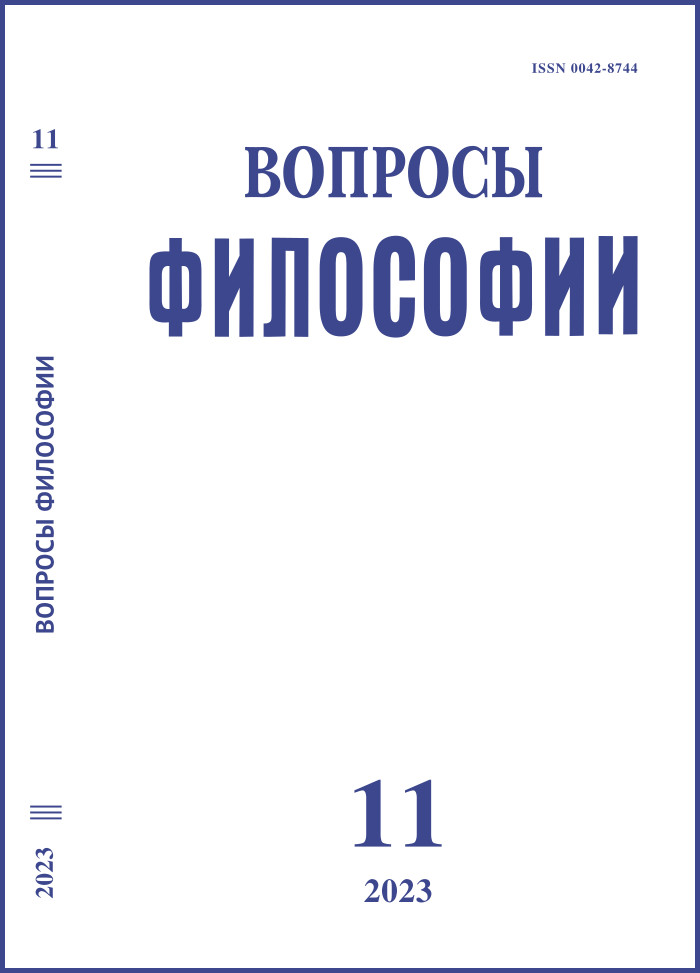Epistemological Traditions in Modern Russian Philosophy
DOI:
https://doi.org/10.21146/0042-8744-2023-11-67-77Keywords:
gnoseology, epistemology, subject, abstraction, communication, values, technoscienceAbstract
“Gnoseology” and “epistemology”, two terms widely used in the theory of cognition, have a history of use for about hundred years. During this time, they were interpreted very differently. In world philosophy, the first term is considered
obsolete, and understanding of the second has developed in connection with the great interest in scientific knowledge. In Russia, the first term is much more common due to its use in dialectical materialism and official ideology, while the second has become widespread in the last fifty years due to the influence of works and translations in the field of philosophy of science. The paper’s
authors take into account the current practice and propose to use the term “gnoseology” to describe the theory of cognition, built on the maximum abstraction of the subject, and to use the term “epistemology” in the theory of cognition with a reduced level of abstraction of the subject, a level that takes into account such social characteristics of the subject as its communicativeness and values. In gnoseology, these components were either not studied, or they were fought with as unscientific and acceptable only in everyday knowledge. Despite the development of philosophical concepts of the sociality of the subject in the theory of cognition, in real technoscience the model of the most abstract mind is still very widely used, which is reflected, first of all, in the content and rhetoric of scientific papers. The paper provides examples from modern scientific texts published in high-ranking technical journals. It is concluded that the exceptional use the abstract representation of the subject prevents the scientists from formulating and realizing the current acute problems of their sciences.

